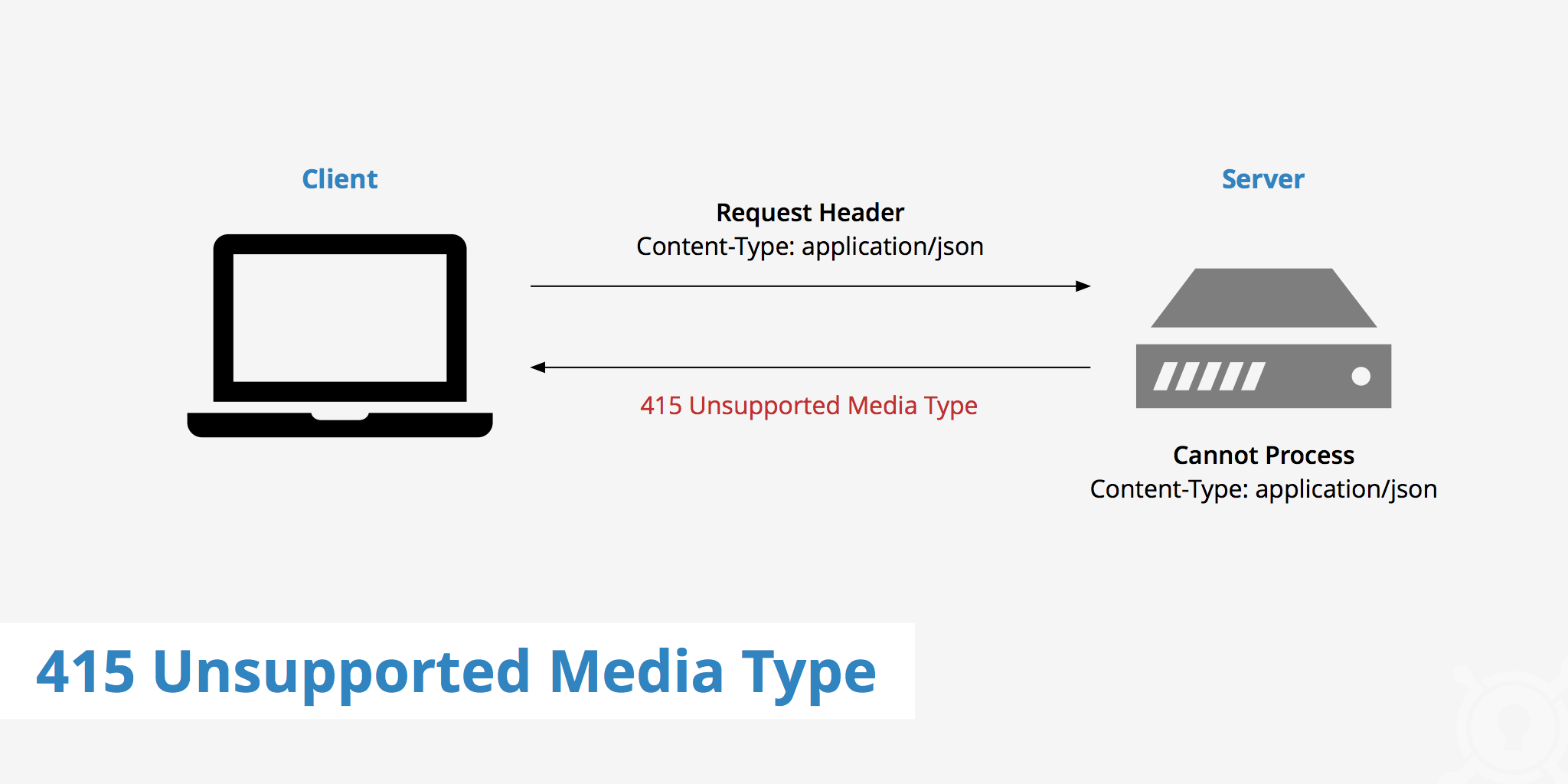415 Unsupported Media Type

As a website owner or developer, you know how frustrating it can be when your website doesn't function as intended. One common issue that you may encounter is the 415 Unsupported Media Type error. This error can prevent users from accessing content and functionality on your website and can negatively impact their experience. In this article, we will explore the causes and impacts of 415 Unsupported Media Type errors, and provide solutions to help you prevent them from occurring on your website.
What does 415 Unsupported Media Type mean?
A 415 Unsupported Media Type error occurs when the origin server refuses a particular request since the resource is in a format that is not supported by the server for the HTTP method used. This unsupported format type issue can be caused by what is defined in the resource's Content-Type or Content-Encoding headers.
The 415 error is somewhat related to the 406 error in that they both occur due to media type related issues. However, the 406 error is not triggered by the value within the Content-Type or Content-Encoding headers but rather by the value within the Accept HTTP header.
The Content-Type header can be included in both request and response headers and tells the server what the data actually is. An example of this is a form submission on a website. The form submission will use a POST method and thus send data to the server. The Content-Type header is included in the request for the server to know what type of data is being sent. However, if the server cannot process the Content-Type value of this request, the client will receive a 415 Unsupported Media Type response.
Content-Type header explained
The Content-Type header is an HTTP header that specifies the media type of the data being sent in an HTTP request or response. It tells the client or server what type of data is being transmitted, such as HTML, JSON, XML, text, image, audio, or video. The media type is defined as a MIME (Multipurpose Internet Mail Extensions) type, which is a standard way of identifying the format of a file. The Content-Type header is an essential component of HTTP communication and ensures that the client and server can correctly interpret and display the content being transmitted.
Content-Encoding header explained
The Content-Encoding header is another HTTP header that specifies the compression algorithm used to compress the data being sent in an HTTP request or response. The most common compression algorithms used are gzip and deflate, which compress text-based data to reduce the size of the data being transmitted and improve network performance. By compressing the data, the server can reduce the time it takes to transfer the content to the client and improve the overall performance of the website. The client receiving the compressed data can use the Content-Encoding header to decode the data and display it to the user in its original format. The Content-Encoding header is an essential component of HTTP communication and can significantly improve website performance by reducing data transfer times.
Fixing 415 Unsupported Media Type errors
Fixing 415 errors can be tricky as they are mainly dependent upon what the client is sending and what the web server can process. A couple of things to look out for when trying to resolve 415 errors include:
- Ensure that you are sending the proper
Content-Typeheader value - Verify that your server is able to process the value defined in the
Content-Typeheader - Check the Accept header to verify what the server is actually willing to process
Summary
In summary, to fix 415 Unsupported Media Type errors, you need to examine what content types the origin server can process and what the client is trying to request. Based upon that information, you can either modify the request to send a compliant Content-Type header or configure the server to accept the Content-Type value sent from the client.